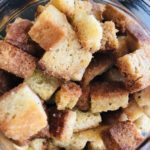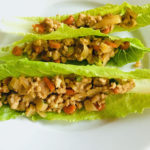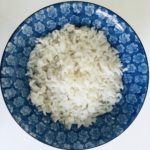 Q. I have had polycystic ovarian syndrome (PCOS) for several years and luckily, though various fertility treatments, was able to conceive and give birth to two beautiful boys (ages 5 and 2). Since my youngest was born via C-section, I had been having abdominal pain, cramping, intermittent diarrhea, etc. I had never had gastro problems before this. Last month, I had a laparoscopy that found endometriosis/adenomiosis/ovarian cysts, all of which were cauterized. I continued to be extremely fatigued, losing weight, diarrhea, etc., so on a whim I had a blood test for celiac that was suggested months earlier by my gastro. Of course, it was positive. I am just coming to grips with all this right now. I am unable to work because I am in the bathroom half the day, on my heating pad for the continued back pain from the laparoscopy, and always exhausted. My family is going on the gluten-free diet to see if that helps me feel better and I am going to have my allergist check me for other food allergies and for a Candida albicans yeast allergy (the allergist found earlier last year that I had virtually no immunity to any strep infection strains and after a pneumonia vaccine shot, the numbers improved – I had been having 8-10 sinus infections a year, flu/bronchitis twice in the past 3 years, and various other weird infections requiring multiple rounds of antibiotics).
Q. I have had polycystic ovarian syndrome (PCOS) for several years and luckily, though various fertility treatments, was able to conceive and give birth to two beautiful boys (ages 5 and 2). Since my youngest was born via C-section, I had been having abdominal pain, cramping, intermittent diarrhea, etc. I had never had gastro problems before this. Last month, I had a laparoscopy that found endometriosis/adenomiosis/ovarian cysts, all of which were cauterized. I continued to be extremely fatigued, losing weight, diarrhea, etc., so on a whim I had a blood test for celiac that was suggested months earlier by my gastro. Of course, it was positive. I am just coming to grips with all this right now. I am unable to work because I am in the bathroom half the day, on my heating pad for the continued back pain from the laparoscopy, and always exhausted. My family is going on the gluten-free diet to see if that helps me feel better and I am going to have my allergist check me for other food allergies and for a Candida albicans yeast allergy (the allergist found earlier last year that I had virtually no immunity to any strep infection strains and after a pneumonia vaccine shot, the numbers improved – I had been having 8-10 sinus infections a year, flu/bronchitis twice in the past 3 years, and various other weird infections requiring multiple rounds of antibiotics).
My question is – are all of these (PCOS, endometriosis, celiac) related? Are there good resources on these diseases if they are or people who actually have all 3? I feel like every few months I find out something new about myself, so I feel like I flit from problem to problem instead of addressing a larger cause.
A. Endometriosis is a completely independent condition, but PCOS and celiac are related. Treatment of the endometriosis should be explored with your gynecologist. The gluten-free diet should help with the other problems, but remember that celiac disease is an inherited condition, so you’ve had this all your life, only to be unmasked by the C-sections. Thus, it will be several months before you’ll see a major benefit of the diet.
Q. Can endometriosis be made worse by celiac disease?
A. There is no doubt that untreated celiac disease can lead to an excessive sensitization of the enteric nerves, and thus augment any pain that might arise from endometriosis. Endometrial implants on the outer surface of the gut are surrounded by connective tissue-as a way of encasing these abnormal tissues. That process can also involve the intestinal muscles and nerves, and, when activated by the immune cells in the celiac patient, the painful sensation is enhanced. I see this also in IBS and IBD and coexisting endometriosis. When I control the inflammation with gut anti-inflammatory drugs, the pain improves. Other than that, these are two independent phenomena that often interact, and one should not consider celiac disease as a cause or effect of endometriosis.
Health and happiness,
Dr. Jeffrey Aron
Gastroenterologist, San Francisco
(Dr. Aron is no longer taking questions.)







Tami Williams says
Dr. Aron,
I read your earlier post, and was wondering if their is a link between single abdominal or ovarian cysts and gluten-intolerance?
And also can food poisoning and/or excessive use of anti-biotics (with their effects on intestines) also cause or exacerbate gluten-intolerance?
Thanks in advance!
Tami
sam says
I’ve been diagnosed with endometriosis as well, had laparoscopy last November, but they couldn’t get it all as it is likely it is in my uterus as well. I’m tired a lot, feel poorly, have spasms in my uterus and back. I also noticed a direct link with pain and diet for me. I’m a big meat eater and love beef. However, the more beef I eat, the worse I feel. That is, until I switched to organic, hormone-free beef. I did some reading online and learned that xenoestrogen is injected into a lot of the beef readily available (most grocery stores and most restaurants as well). Thank goodness to have a Trader Joe’s nearby. For the past month, I’ve only eaten organic beef and the pain as well as the spasms have lessened for me. Just thought I’d share in case there are any other beef lovers out there who are also having this problem.
rj says
I recently found that eliminating gluten from my diet has made a HUGE improvement in my health. For all of my adult life I suffered from joint and back pain, fatigue, terrible cramps and PMS, dandruff, pelvic pain, abnormal monthly bleeding, insomnia, frequent diarrhea and anxiety. Since undergoing a bunch of tests,my doctor found three polyps in my uterus which accounted for the abnormal bleeding and them from online research, I tried eliminating gluten and within three days the vast majority of my symptoms went away. My PMS and pelvic pain are 90% better. I think that there must me a lot of unexplained symptoms that could be helped with diet and that the majority of Doctors don’t receive adequate training in nutrition. My aunt is an MD and a nutritionist and has been much more helpful than my local doctors. Once I realized how much better I feel, I really don’t feel like I’m missing out too much from avoiding gluten.
Jack says
A pilot study is showing that there is potentially a link between Celiac and endometriosis. See here:
http://www.ncbi.nlm.nih.gov/pubmed/19400413
Donna says
Hiya everyone i have been reading your posts i am 24 and have suffered from severe endometriosis for years i am considering a hysterectomy as it is that bad i also have been diagnosed with coeliac disease too and i know there is definitely a link between the two my advice if you do suffer any gyno problems get straight onto a gluten free diet asap .
alison says
Donna,
I am sorry to hear how bad it is for you. What came first, the endometriosis or the celiac diagnosis?
Candice says
I too recently underwent surgery for very mild endometriosis and an endometrial cyst on my ovary. I haven’t been diagnoses with celiacs disease but am FULLY convinced that gluten is the major culprit in the onset of my endometriosis and ongoing pelvic pain. Every time I eliminate is from my diet I feel no pain, have more energy, and overall feel healthier. I know now how important it is to feed my body the right things. For me this also means eating meats with no antibiotics and hormones and eating organic as much as possible. I LOVE my OBGYN but it’s been frustrating how little he knows about how much diet can effect my health. I’ve seen many holistic doctors, nutritionist, acupuncturists, and chiropractors and they all agree that gluten is not good! Do your own research! It’s shocking!
Cath says
A tip for those with gluten intolerance on the gluten free diet and still suffering endo-pains…
Try cutting out DAIRY as well. A lot of times, if the villi in your small intestine has been damaged by gluten, you are not able to process milk and other dairy without severe abdominal pain. It took me a long time to figure this out, so I hope it helps someone out there!
Try almond milk, if you really need some milk. It’s great.
Nadya says
I’ve done massage out of a Naturopath’s office for 17 years, & one of our receptionists had Endometriosis – she commented that there’s a STRONG link between candida & endo … & since getting that under control (which included being totally grain free, so GF by default!) she was much better! One of the Endo books had suggested consulting an ND, as at the time (late ’80s) few MDs recognized candida overgrowth as an actual problem!
Fast forward to now – I’ve been gluten free 2 years, & know several women with PCOS who have improved going gluten free. Since gluten ‘feeds’ yeast (candida), the potential link with endo becomes more obvious.
It is a good idea to go dairy free as well (Gluten Free RN suggests 6 months, then see if you can reintroduce dairy) – I use coconut oil & milk, which are anti-fungal, anti-viral & anti-bacterial. Bruce Fife (Coconut Oil Miracle) writes ‘one of the most potent nondrug/natural yeast-fighting substances is caprylic acid, a Medium chain fatty acid derived from coconut oil.’ & goes on to mention that Polynesian women eating their traditional high coconut diet
‘rarely, if ever, get yeast infections.’ He also suggests beginning slowly (1 tsp of coconut oil daily, working up to several Tbsp) if you suspect candida, as the coconut oil causes yeast die-off.
Mama’s milk contains these same Medium chain fats, which make it so protective! Fife writes that an ‘average size adult’ would need 3 1/2 Tbsp oil or 10 oz coconut milk, or 7 oz fresh coconut to get the same proportion of MCFAs as a nursing baby.